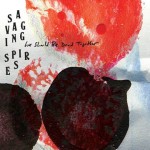Philosophy, as we all know, is terribly, terribly dull. I mean that quite literally; that’s why it’s confined to the monochrome of the print, housed inside books with lifeless covers, stored on the shelves of only the very baldest academics. Its unpopularity is a testament to its ability to provoke instant boredom in the sane. Even the word itself – philosophy – evokes images of poorly-tended facial hair, plumes of dust, ancient buggery. Proof? (A daring question in a sphere that often contains so much bullshit). Just ask anybody at all for their thoughts on Kant. They will either ask you who he is or bore you with an answer.
Films, on the other hand, belong to a different category altogether. Films are exciting; they strobe with life-affirming energy. Films flash, bang, whoop, knock off heads, blow minds, thrash every nervous impulse in you and leave you breathless. Or else they reach into you and start poking things until you smile, reminisce, weep, kick out. Good films, at least. But what happens when these two worlds get confused – when the substance-less chaff of philosophy sneaks into the cheap costume of cinema and dances around for our entertainment? At what point can the two meet, and can that collision be anything but totally, apocalyptically destructive? Two and a half millennia since dear Plato’s Grecian scrawlings, our century alone may give us an answer.
A fact: philosophy has permeated film since the very beginning. But it had to do so through abstract ideas, thankfully unreferenced and appearing in the usual disguise of storytelling that makes philosophy acceptable to normal human beings. Wasn’t I Heart Huckabees [2004, dir. David O. Russell] one such lovely little story? True entertainment draped neatly on a frame of genuine, well-delivered philosophy, even if the Hollywood parade sometimes appeared a little strained. Then there was the ravaging cult success of Waking Life [2002, dir. Richard Linklater], which was downloaded by several million’s worth of student stoners seeking stimulation beyond the bong, and finding it. But the source? The philosophers themselves? These people have been giving interviews and video lectures since Lacan, but luckily these were largely regulated to the VHS collections of other philosophers and ignored by the rest of us. Documentaries fetishising our favourite eggheads are equally well-established (a list of the best is given below), and have typically consisted of awkward reconstructions of madmen performing routine activities in various European locations. Schopenhauer, Nietzsche, Cioran: not TV-types as such. But then, the turn of the millennium (fireworks planned and otherwise), and suddenly: two documentaries of prominent philosophers still alive, followed around their actual homes and finally given the chance to make a true debut on the silver screen… Enter Jacques Derrida and Slavoj Zižek.
Derrida [2002, dir. Kirby Dick & Amy Ziering] broke the mould. The subject fits the profile: ‘let’s look at a man whose thoughts everyone discusses but no one understands.’ ‘Let’s draw from his own ambiguous deconstructive toolkit and apply his methods to a documentary about the man himself.’ And actually, it works. The film introduces his ideas in his own words, draws us into his personal relationship with the camera and challenges us with some key cinematic ideas: namely, how do we deal with the constructs of the fake in our cinema? It reinforces the cult of Derrida (I had never seen his cheeky Blue Steel pout before) while turning the camera back towards the filmmakers and on towards ourselves. What is it we expect from documentaries? Do we expect the truth, or something more, or something less? Zižek! [2005, dir. Astra Taylor] (explanation mark compulsory) poses much the same question, though the philosopher-celebrity type is taken further down predictably-bizarre avenues of absurdity. We grow to love the hulking Ljubljanian bastard, to personalise him, to internalise him and his thought. Gaining a full understanding of him is the role of his books; glamourising him is the role of the film. These characters, Derrida and Zižek, themselves full of mystery and dust, are actually perfect for the screen: not in the slick TV-dinner philosophy of TED-talker Alain de Botton and others but in the manner of an elusive icon, a rock star, a sex symbol.
For the moment, philosophy and film have fooled around but failed to call each other. It has been a little while since any significant silt has been thrown up from the seabed of our cinema philosophica. But if the current cinematic trends are anything to go by, then surely there can be only one next step. The philosophical biopic, anyone? It is, is some ways, surprising that Hollywood has yet to dip their rubbered glove into the infinite files of philosophers-with-interesting-lives, but it is only a matter of time (and money). The Germans have already dealt with Hannah Arendt (gracefully examining with her involvement in the Eichmann trial), the French with Sartre and de Beauvoir (see below) – but where are the Americans? I speak only for myself when I say it would be a delight to look up at a poster in the iMax and see Tommy Lee Jones wearing an overblown Nietzschean moustache or Donald Sutherland strangling Angelica Huston whilst dressed as Louis Althusser. (‘Like-to-see’s in the comment box, please.) It is possible that putting someone like Heidegger up on the big screen would reduce him to a simple bastard Nazi, or Foucault to a sexual deviant. It is possible that philosophers have to stay in their historical boredom-bubble for their personalities, and their thoughts, to remain pure. Possible, but do we care? Has any history – art, politics, science – really suffered from a healthy injection of sex? That will be something for the industry, and the paying public at large, to decide.
And so, an open letter to Hollywood is formed. Let’s see James Franco with a quill in his hand! No doubt ideas are being pitched right now that will soon see one of our favourite philosophical giants wandering down the red carpet at an Odeon near you. And that may very well be a good thing. Otherwise, the joy of philosophy (existing somehow despite it all) may always remain the dirty little secret of the academics.
If you’re keen for more, have a wee Googly-woogly of these dusty gems:
Derrida (2002) [dir. Kirby Dick & Amy Siegel]
Examined Life (2008) [dir. Astra Taylor] – features interviews with Judith Butler and Peter Singer
Hannah Arendt (2012) [dir. Margarethe von Trotta]
Human, All Too Human (1999) – three-part BBC series on Nietzsche, Sartre and Heidegger
I Heart Huckabees (2006) [dir. David O. Russell]
Les amants du Flores (2006) [dir. Ilan Duran Cohen] – hard-to-come-by TV special on Jean Paul Sartre and Simone de Beauvoir’s famously open relationship
Marx Reloaded (2011) [dir. Jason Barker]
Michel Foucault: Beyond Good and Evil (1993) [dir. David Stewart]
Noam Chomsky: Distorted Morality (2003) [dir. John Junkerman] – enough Chomsky to sink a flotilla can be found on the old boy’s YouTube channel
The Pervert’s Guide to Cinema (2006) and The Pervert’s Guide to Ideology (2012) [dir. Sophie Fiennes] – two seminal pieces of Zižekography
Waking Life (2002) [dir. Richard Linklater] – also a great example of the rotoscope animation technique Linklater later used in A Scanner Darkly (2006)
Zižek! (2005) [dir. Astra Taylor] – Zižek also has enough online lectures to flood the internet; his YouTube channel is particularly distracting




